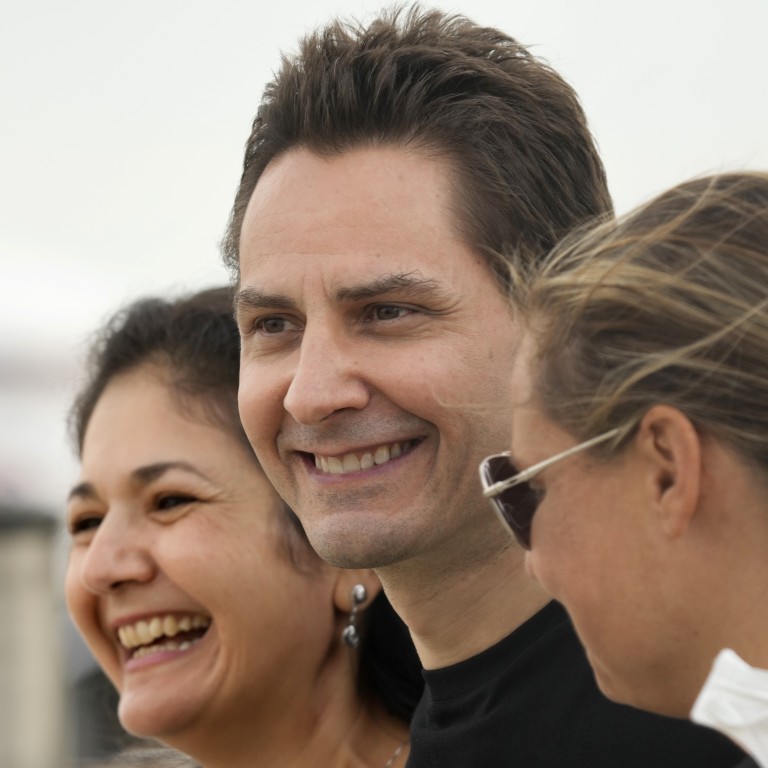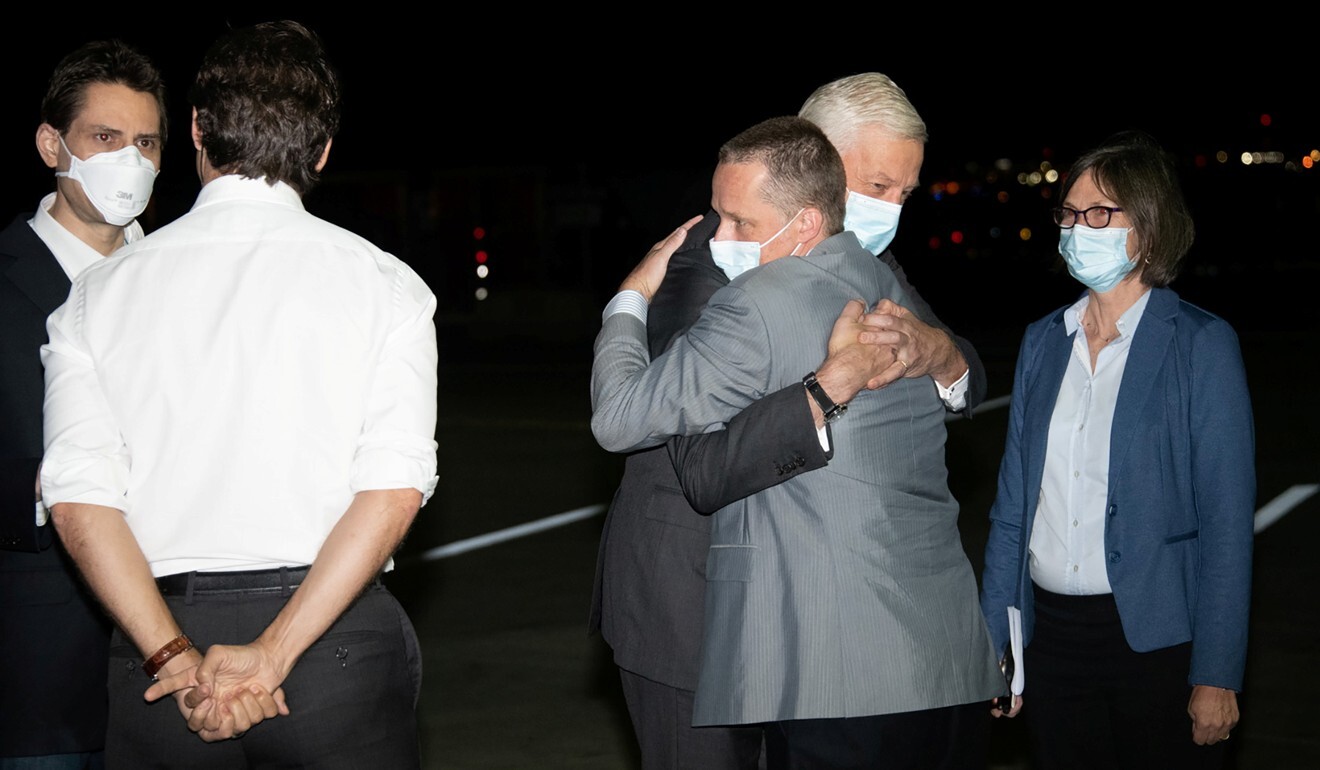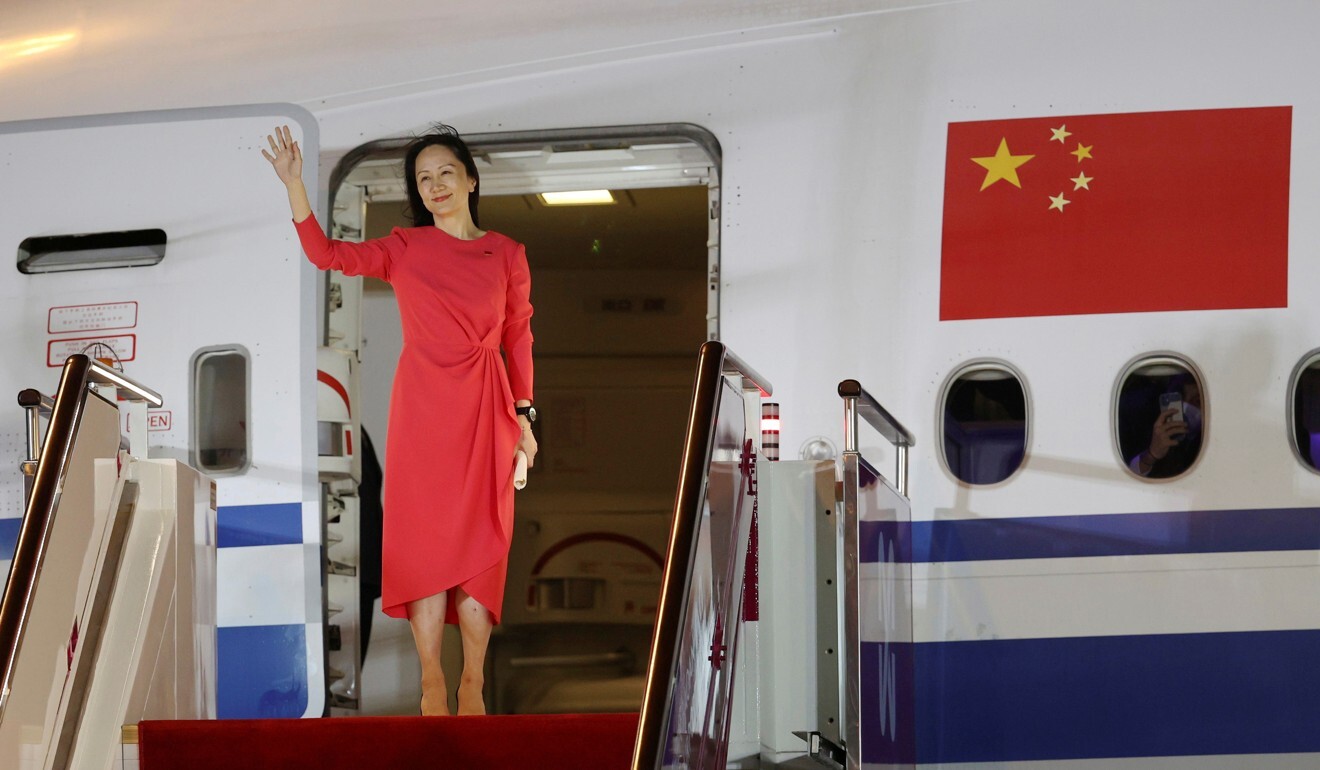
China wants ‘non-discriminatory’ treatment of Huawei, as survey says 76 per cent of Canadians want the tech company banned from 5G
- Support for Huawei playing a role in Canada’s 5G infrastructure has plummeted since 2019, according to a Nanos poll
- The findings come after China released Michael Kovrig and Michael Spavor, whose treatment was viewed by Ottawa as hostage diplomacy
The Nanos poll was conducted for The Globe and Mail newspaper after China released two Canadians whose detention for almost three years was viewed by Ottawa as hostage diplomacy.
Michael Kovrig and Michael Spavor were released last month on the same day as Huawei executive Meng Wanzhou, who was being held under partial house arrest in Vancouver until she struck a deal with the US that resulted in prosecutors dropping their request for her extradition on fraud charges.
Nanos found that 76 per cent of respondents wanted Huawei banned, up from 53 per cent two years ago.

The Canadian government of Prime Minister Justin Trudeau has repeatedly delayed making a decision about whether to let Huawei play a role in constructing the nation’s next-generation wireless internet infrastructure amid security concerns.
No crime and no punishment as Meng admits wrongdoing without guilt
On September 28, Trudeau said he hoped to announce a decision “on telecommunications and Huawei in the coming weeks”.
On Tuesday, Chinese foreign ministry spokesman Zhao Lijian responded to the survey findings at a regular briefing in Beijing.
“The Canadian side should adopt an objective and unbiased attitude, independently make decisions that are in line with its interests, and provide a fair, just, open and non-discriminatory business environment for Chinese companies,” he said.

The Nanos poll found 69 per cent of Canadians want to delay trade deal negotiations with China, compared to 47 per cent in 2019, while 87 per cent support Canada trying to “contain” China’s power by joining forces with the US, Britain and Australia.
A separate Nanos poll for the Bloomberg news agency found that only 11 per cent of Canadians believed the Canada-China relationship could be repaired to its state before Meng’s arrest and that of the two Michaels.
Thirty-six per cent believed it had been permanently damaged, while a further 48 per cent said they thought it could be repaired a little.
Meng Wanzhou’s tear-soaked message to China as she soars over Arctic
Both surveys involved more than 1,000 people and were conducted from September 30 to October 3. Their margin for error was 3.1 percentage points, 19 times out of 20.
Meng flew back to China from Canada on September 24 after a deferred prosecution agreement was reached.
Kovrig and Spavor, who were arrested in China days after Meng’s detention in Canada, were put on trial for espionage this year.
But they too were released, and their flight to Canada took off soon after Meng’s departure for China. China said they were released on medical grounds, and Beijing, Ottawa and Washington all denied they were part of an exchange to secure Meng’s release.

